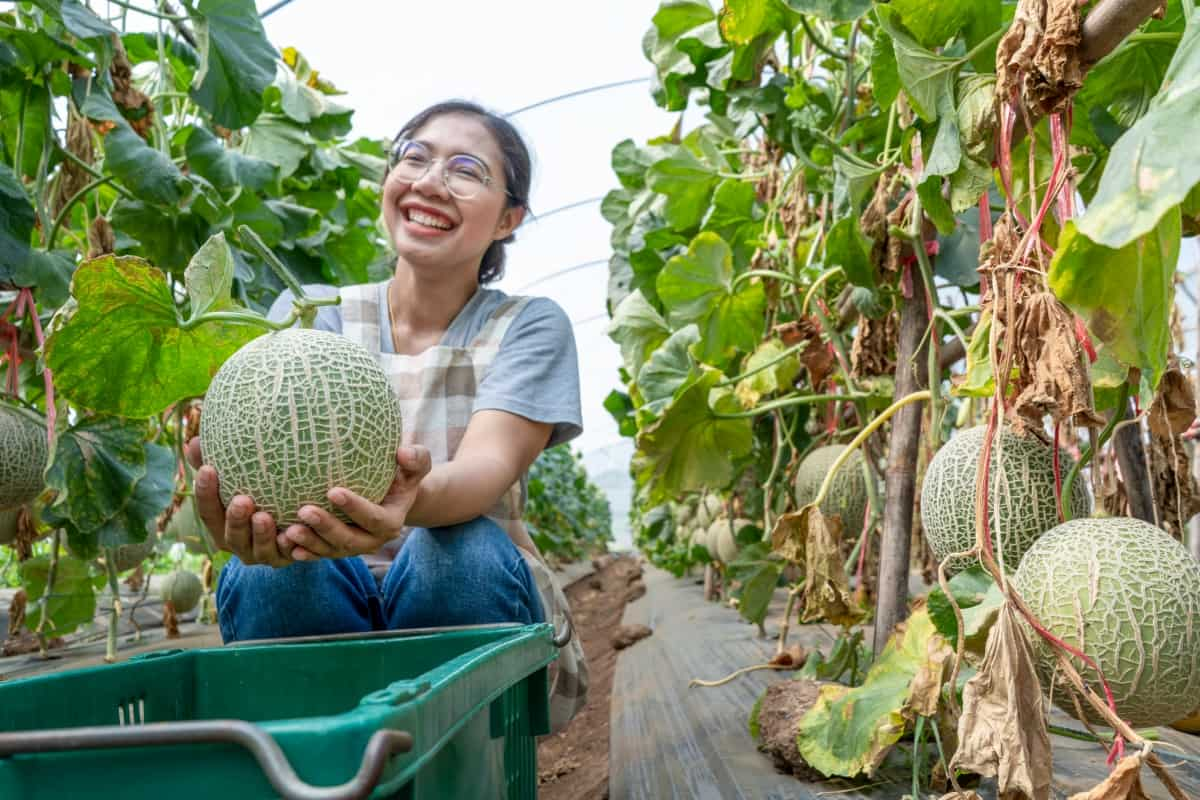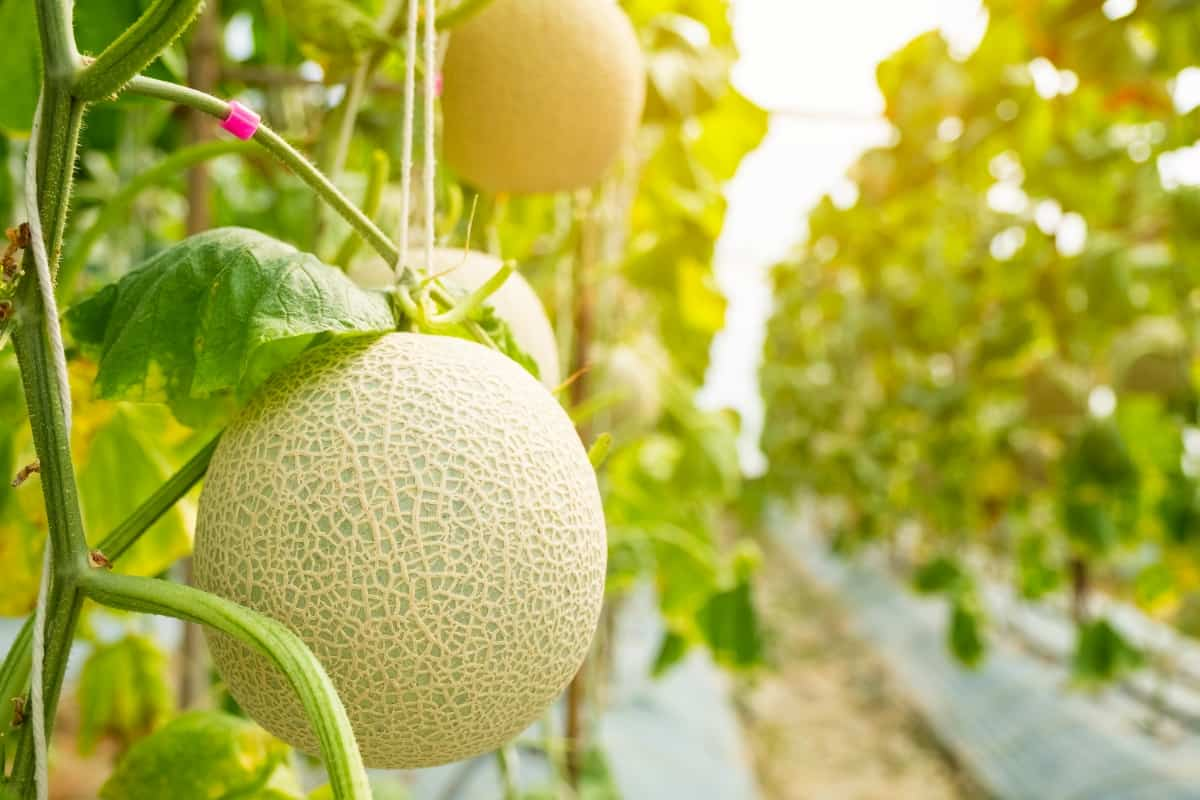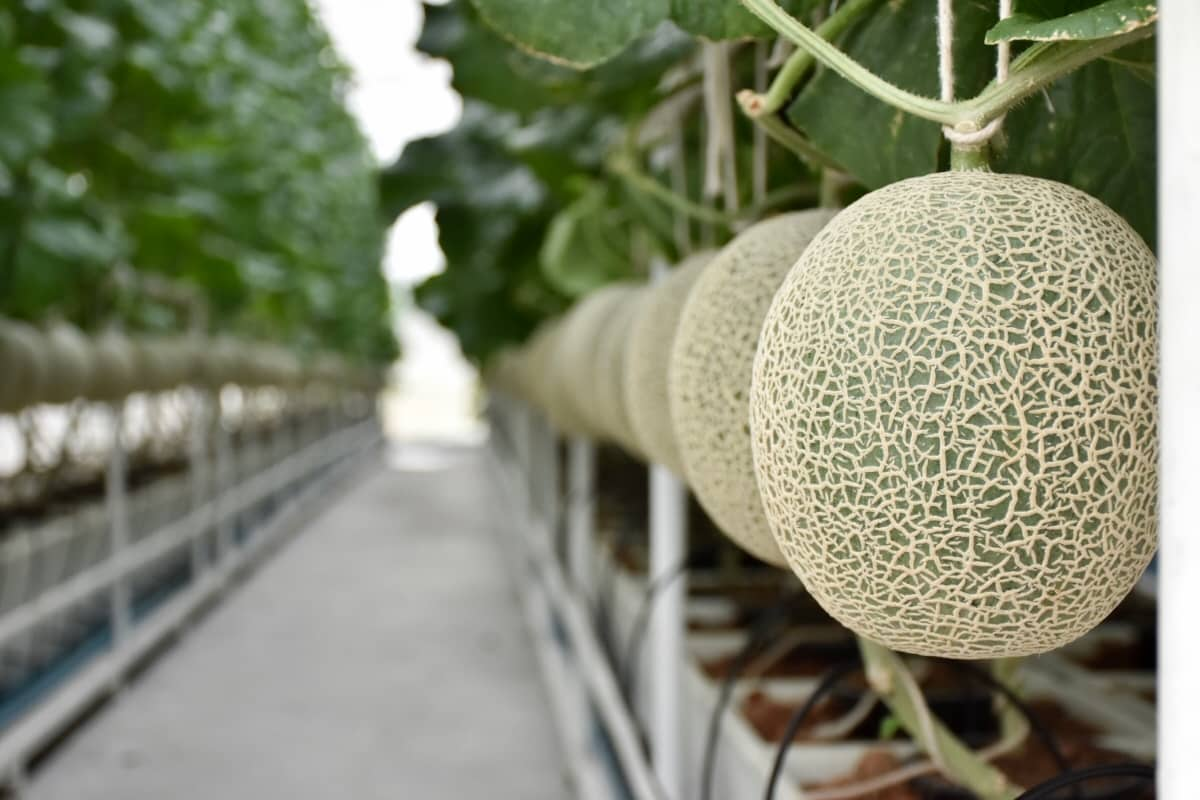Welcome to “Unlocking the Potential: Exploring the Economics of 1-Acre Muskmelon Cultivation for Profitability.” This comprehensive guide delves into the financial landscape of cultivating muskmelons on a 1-acre farm. By analyzing production costs, market trends, and profit potential, we aim to provide valuable insights for farmers and entrepreneurs interested in maximizing their returns from muskmelon farming. Get ready to unlock the untapped potential of this lucrative agricultural.

1-Acre Muskmelon/Cantaloupe Farming Cost and Profit
What is Muskmelon Cultivation
Muskmelon cultivation, also known as cantaloupe farming, refers to the agricultural practice of growing muskmelon plants for commercial production. Muskmelon (Cucumis melo) is a warm-season fruit crop belonging to the Cucurbitaceae family.
Market and Demand for Muskmelon
Muskmelon cultivation worldwide benefits from a wide range of high-yielding and adaptable varieties. Among the prominent varieties are Alaska, Earligold, Sweet N Early, Canada Gem, Primo, Solid Gold, Early Hanover, Pulsar, Magnum, Sweet Granite, Delicious, Pike, Superstar, Ambrosia, Hale’s Best, Edisto, Grande Gold, Imperial. These varieties offer diverse characteristics, flavors, and textures, catering to different consumer preferences.
Best Package and Practices for Muskmelon Cultivation/Farming
Season and Climate: Muskmelon cultivation is typically carried out from November to February. The optimal temperature for seed germination ranges from 23 to 25°C, while the ideal temperature for growth and fruit development is around 20 to 32°C. High temperatures and low humidity during fruit ripening enhance the sweetness and aroma of the fruit.
Warm nights accelerate fruit maturity. Muskmelons tolerate drought but are vulnerable to frost. High humidity promotes the occurrence and spread of diseases like downy mildew and anthracnose and pests like fruit flies.
Soil Requirement: Well-drained sandy loam soil enriched with organic matter is ideal for muskmelon cultivation. The soil pH of the Soil ranges from 6.5 to 7.5. Muskmelons have some tolerance to soil acidity but cannot withstand high salt concentrations. Lighter soils facilitate early fruit harvest, while heavier soils promote vine growth but delay crop/fruit maturity.
Seed Rate: The recommended seed rate for muskmelon cultivation is 400 to 600 grams per acre.
Methods of Sowing and Planting: Sowing typically occurs between October and November in southern and central parts of India. Muskmelon seeds can be directly sown or transplanted. Seeds are soaked in the water for 12 to 24 hours before sowing for improved germination. In-pit and raised bed cultivation, seeds are sown in pits or trenches. Before sowing, seed treatment with Trichoderma viride, Pseudomonas fluorescence, or Metalaxyl can be beneficial. Early crops from seedlings grown in polythene bags mature 15 to 20 days earlier than directly seeded crops.
Field Preparation: The main field should be plowed to achieve a fine tilth, and long channels should be formed 2.5 meters apart.
Spacing: Seedlings should be placed approximately 2 to 3 feet apart within rows that are 5 to 6 feet apart.
Transplanting: Seedlings that are 20 to 30 days old and have 2 to 3 true leaves can be transplanted. The seedlings should be placed at the edges of furrows or the lower half height of the ridge to ensure sufficient irrigation or moisture availability. Irrigation should be provided immediately after transplanting.
Manures and Fertilizers: At the time of land preparation, farmyard manure and neem cake can be applied. Half of the recommended dose of nitrogen (N) and the full dose of phosphorus (P) and potassium (K) can be applied as basal. In contrast, the remaining nitrogen can be applied when earthing up, which occurs four weeks after sowing.
Applying micronutrients promotes plant growth, increases fruit yield, and enhances flesh thickness and rind quality. The general fertilizer recommendation for muskmelon is 32 kilograms of nitrogen, 24 kilograms of phosphorus, and 12 kilograms of potassium per acre.
Irrigation: Muskmelons require frequent but light irrigation, especially during the early stages of crop growth. The first irrigation for directly sown crops can be delayed if the Soil retains sufficient moisture. For transplanted crops, irrigation should be provided immediately after transplanting, followed by weekly intervals. Irrigation should be done when necessary during fruit maturity, indicated by withering veins in the morning. Excessive irrigation during fruit maturity should be avoided, as it can reduce fruit sweetness.
Weeding: Prevent flooding of the field and consider installing drip irrigation for weed control. Keep the field free from weeds during the early growth stages. Perform weeding and earthing up when applying a top dressing of nitrogen (N). Light hoeing during the initial stages of vine growth is recommended.
Mulching: Mulching with straw can prevent fruits from coming into contact with water.
Pruning: Remove secondary shoots up to the 7th node on the main stem to improve plant growth and fruit set. Pruning helps enhance yield and fruit quality.
Storage: Muskmelons are perishable fruits stored at room temperature for only 2 to 4 days. For longer storage, they can be kept in a cold store at 2-4°C with 85-90% relative humidity for 2 to 3 weeks.
In case you missed it: 1-Acre Banana Farming Cost and Profit Analysis: Cultivation Economics and Production Project Report

Cost of Cultivation, Total Returns and Net from 1 Acre Muskmelon Cultivation/Farming
Expense Cost Range (USD)
| Item | Quantity | Unit Price | Total Estimate |
| Cantaloupe | 8,000 melons | $0.75 | $6,000.00 |
| Variable Costs | |||
| Custom Soil Test | 1 kit | $13.00 | $13.00 |
| Fertilizer Application | 1 acre | $8.20 | $8.20 |
| Moldboard Plowing | 1 acre | $25.20 | $25.20 |
| Pest Scouting | 1 acre | $20.00 | $20.00 |
| Disking | 2 acres | $19.90 | $39.80 |
| Harrowing | 2 acres | $14.40 | $28.80 |
| Bee Rental | 1 hive | $100.00 | $100.00 |
| Fertilizer/Lime | |||
| Lime plus Spreading | 0.5 ton | $29.00 | $14.50 |
| Nitrogen | 100 pounds | $0.23 | $23.00 |
| Phosphorus | 100 pounds | $0.24 | $24.00 |
| Potassium | 150 pounds | $0.24 | $36.00 |
| Herbicides | 1 acre | $37.78 | $37.78 |
| Fungicides | 1 acre | $232.62 | $232.62 |
| Insecticides | 1 acre | $68.89 | $68.89 |
| Other Variable Costs | |||
| Plastic Mulch | 8,712 feet | $0.03 | $261.36 |
| Drip Tape | 8,712 feet | $0.02 | $174.24 |
| Cantaloupe Transplants | 3,200 plants | $0.33 | $1,056.00 |
| Labor | |||
| Hand Labor | 6 hours | $15.00 | $90.00 |
| Operator Labor | 3 hours | $18.00 | $54.00 |
| Fuel | 50 gallons | $2.60 | $130.00 |
| Hand Harvesting | 38 hours | $15.00 | $570.00 |
| Marketing and Advertising | 10% commission | $6,000.00 | $600.00 |
| Cartons | 28 bulk bins | $17.00 | $476.00 |
| Repairs and Maintenance | |||
| Tractors | 1 acre | $35.21 | $35.21 |
| Implements | 1 acre | $69.05 | $69.05 |
| Additional Inputs | 1 acre | ||
| Interest on Operating Capital | 1 acre | $44.71 | $44.71 |
| Total Variable Costs | $4,232.36 | ||
| Fixed Costs | |||
| Tractors | 1 acre | $71.77 | $71.77 |
| Implements | 1 acre | $162.08 | $162.08 |
| Land Charge | 1 acre | $200.00 | $200.00 |
| Food Safety Inspection | 1 crop | $250.00 | $250.00 |
| Additional Inputs | 1 acre | ||
| Total Fixed Costs | $683.85 | ||
| Total Costs | $4,916.21 | ||
| Returns | |||
| Net Returns over Variable Costs | $1,767.64 | ||
| Net Returns over Total Costs | $1,083.79 |
Challenges and Risks in Muskmelon Cultivation/Farming
Challenges and risks in Muskmelon cultivation/farming include susceptibility to diseases such as Panama disease and black Sigatoka, pest infestations, adverse weather conditions, market fluctuations, high initial investment, and regular maintenance and monitoring to ensure healthy crop growth and yield.
In case you missed it: 1-Acre Apple Cultivation Cost and Profit Analysis: Economics and Production Project Report

Conclusion
In conclusion, 1-acre muskmelon cultivation has the potential for profitability. With an average yield of 88 quintals per acre and a net return range of $18 to $20 per quintal, the cultivation can result in favorable economic outcomes, making it an attractive option for farmers seeking profitability in the agricultural sector.
- Ultimate Guide to Ossabaw Island Hog: Breeding, Raising, Diet, and Care
- Ultimate Guide to Juliana Pig: Raising Facts, Size, Diet, Care, and Lifespan
- Raising Lleyn Sheep: Disadvantages, Price, Uses, Characteristics, and Care
- Ultimate Guide to Meishan Pig: Breed Facts, Breeding, Raising, and Care
- Ultimate Guide to Teacup Pigs: Raising, Diet, Lifespan, Cost, and Care
- Guide to Raising Poll Dorset Sheep: Facts, Profile, Characteristics, Uses, and Care
- Ultimate Guide to Bighorn Sheep: Characteristics, Diet, Lifespan, Breeding, and Lifecycle
- Ultimate Guide to Raising Katahdin Sheep: Farming Facts, Breed Profile, Uses, and Care
- Ultimate Guide to Raising Oreo Cows: Belted Galloways Farming Facts, Profile, Uses, and Care